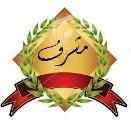Sunnah
The term Sunnah comes from the root word sanna, which means to pave the way or make a path easily p****able, such that it becomes a commonly followed way by everyone afterwards. Thus sunnah can be used to describe a street or road or path on which people, animals, and cars travel. Additionally, it can apply to a prophetic way, i.e. the law that they brought and taught as an explanation or further clarification of a divinely revealed book. Normally, the prophetic way includes references to his sayings, actions, physical features and character traits.
From the Islamic standpoint, Sunnah refers to anything narrated or related about the Prophet Muhammad (pbuh), authentically traced to him regarding his speech, actions, traits, and silent approvals, before and after the revelation.
Each narration is composed of two parts: the isnad and the matn. The isnad refers to a chain of people who narrated a paricular narration. The matn is the actual **** of the narration. The isnad must comprise upright and sincere individuals whose integrity is unquestionable.
The Speech of Prophet Muhammad (pbuh)
The speech of Prophet Muhammad (pbuh) refers to his sayings. For example, he said:
"Actions are judged by their intentions; everyone will be rewarded according to his/her intention. So whoever migrates for the sake of Allah and His Prophet then his migration will be noted as a migration for the sake of Allah and His Prophet. Conversely, one who migrates only to obtain something worldly or to marry a woman, then his migration will be worth what he had inteded.? [Bukhari]. The Prophet (pbuh) also said: ?Whoever believes in Allah and the Last Day, should say something good or keep quiet.
The above two accounts clearly show that the Prophet (pbuh) spoke these words. Consequently, these are known as his speech.
The Actions of Prophet Muhammad (pbuh)
His actions pertain to anything he did, as authentically reported by the Sahabah (Companions). For instance, Hudhayfah reported that whenever the Prophet (pbuh) got up at night, he would clean his teeth with a tooth-stick. Also A'ishah reported that the Prophet (pbuh) loved to do everything starting with the right side - putting on shoes, walking, cleaning himself, and in all his affairs generally.
The Silent Approvals of Prophet Muhammad (pbuh)
His silent approvals on different issues meant his not opposing or minding what he saw, heard or knew of the actions or sayings of his Companions. On one occasion, for example, the Prophet (pbuh) learned of actions of some of his Companions from other Companions. Soon after the battle of Khandaq, Prophet Muhammad (pbuh) gave the order to the Companions to move quickly to surround the tribe of Banu Quraydah, encouraging them to hurry so that perhaps they would pray 'Asr (the late afternoon prayer) there. Some of the Companions of the Prophet (pbuh) responded immediately and left without praying 'Asr. They arrived after sunset, pitched camp and prayed 'Asr- after sunset. At the same time another group of Companions formulated their judgment differently. They thought that the Prophet (pbuh) was merely encouraging them to hasten to their destination, rather than to delay 'Asr until after sunset. Consequently, they decided to stay in Madinah until they had prayed 'Asr. Immediately thereafter, they hastened towards the tribe of Banu Quraydhah. When the Prophet (pbuh) was told of how each group responded differently to his announcement, he (pbuh) affirmed both judgments.
Physical and Moral Traits of Prophet Muhammad (pbuh)
Everything authentically narrated concerning the Prophet's complexion and the rest of his physical features is also included in the definition of sunnah. Umm Ma'bad described what she saw of the great Prophet (pbuh). She said:
"I saw a man, his face radiant with a bright glow, not too thin or too fat, elegant and handsome. His eyes had a deep black hue with long eyelashes. His voice was pleasant and his neck long. He had a thick beard. His long black eyebrows were beautifully arched and connected to each other. In silence, he remained dignified, commanding utmost awe and respect. When he spoke, his speech was brilliant. Of all people he was the most handsome and the most pleasant, even when approaching from a distance. In person, he was unique and most admirable. Graced with eloquent logic, his speech was moderate. His logical arguments were well organized as though they were a string of gems. He was not too tall or too short, but exactly in between. Among three, he appeared the most radiant and most vibrant. He had companions who affectionately honored him. When he spoke, they listened to him attentively. When he gave orders, they were quick to execute them. They rallied around him guarding him. He never frowned or spoke frivolously." [Hakim]
Along with his physical features, his Companions also described his habits and behavior with people. Once Anas reported:
"I served the Prophet of Allah (pbuh) for ten years. Never once did he so much as express any bit of displeasure nor did he ever ask 'Why did you do it?' for something I did or 'Why didn't you do it?' for something I didn't do."
From the above we can clearly see that when the term sunnah appears in a general con**** refering to Prophet Muhammad (pbuh) it comprises anything narrated about the Prophet (pbuh) and authentically traced to him. Once a Muslim learns of the authenticity of any narration, he/she is obliged to follow and obey it accordingly. Such obedience is mandated by Allah as He declares
"...and obey Allah and His Prophet and do not turn away when you hear (him speak)." [8:20]
At times, some Muslims are perplexed when people say that sunnah is something only recommended and is not mandatory. Thus they conclude that we are only required to follow the Qur'an and not the Sunnah. Such an argument results from a gross misunderstanding. Scholars of Islamic jurisprudence use the term sunnah to denote what is authentically established of Prophet Muhammad (pbuh) in deeds which were not subsequently made mandatory by Allah.
They further hold that this includes any saying of Prophet Muhammad (pbuh) where he encourages Muslims to do a particular task and compliments those who imbibe such attributes. Thus to them, the term sunnah denotes what is authentically established of Prophet Muhammad (pbuh) in deeds which he did voluntarily and which were not subsequently made mandatory by Allah. They further hold that this includes any saying of Prophet Muhammad (pbuh) where he encourages Muslims to do a particular task and compliments those who imbibe such attributes. Thus to them, the term sunnah refers to what is "recommended" and is not mandatory (fard or wajib).
From the above, we can clearly see that the term sunnah takes on different meanings when used by different Islamic disciplines.
Dr. Abu Ameenah Bilal Philips














